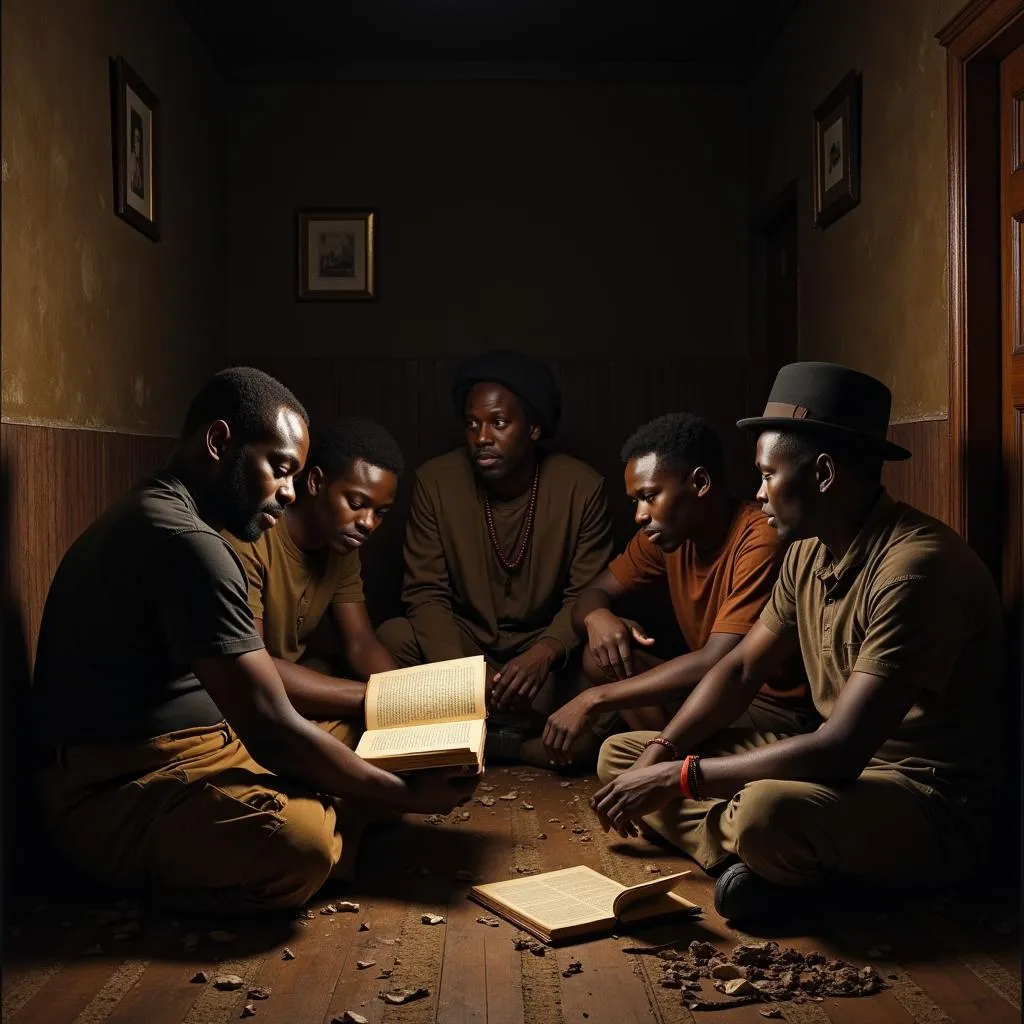African American Education in the 1800s: A Struggle for Knowledge and Equality
The quest for education among African Americans in the 1800s was a complex and arduous journey, fraught with obstacles and discrimination. Despite facing immense challenges, enslaved and free Black individuals alike recognized the transformative power of knowledge and relentlessly pursued opportunities for learning. This article delves into the historical landscape of African American education during this pivotal century, examining the systemic barriers, inspiring stories of resilience, and the seeds of change that would eventually blossom into a movement for equal access to education.
A Legacy of Denial: The Fight Against Systemic Barriers
During the antebellum period, the institution of slavery cast a long shadow over the lives of African Americans, and education was no exception. Laws in many Southern states explicitly prohibited the education of enslaved people, fearing that literacy would empower them to challenge the status quo. This deliberate suppression of knowledge aimed to maintain the existing power structure and perpetuate the subjugation of Black people.
 Enslaved African Americans Secretly Learning to Read
Enslaved African Americans Secretly Learning to Read
Despite these oppressive laws, a thirst for learning persisted. Enslaved individuals found ingenious ways to acquire knowledge, often through clandestine gatherings and with the covert support of sympathetic Whites. The act of learning to read and write, often considered a fundamental right, became an act of defiance and a testament to the unyielding human spirit.
Seeds of Hope: The Rise of Black Schools and Educators
The post-Civil War era marked a turning point in African American education, albeit one laden with new challenges. The ratification of the 13th, 14th, and 15th Amendments to the U.S. Constitution ushered in a period of Reconstruction, promising equal rights and opportunities for Black citizens. Education quickly emerged as a central focus, seen as instrumental in uplifting newly freed individuals and fostering economic self-sufficiency.
 Freedmen's Schools During Reconstruction
Freedmen's Schools During Reconstruction
Freedmen’s Bureau schools, often established with the help of Northern missionaries and abolitionists, sprung up across the South, providing basic literacy and vocational skills to formerly enslaved people. These institutions, though often underfunded and facing hostility from white Southerners, represented a beacon of hope and a testament to the unwavering commitment to Black education.
Against All Odds: Stories of Perseverance and Achievement
The 1800s witnessed the emergence of extraordinary African American educators who dedicated their lives to empowering their communities through knowledge. Figures like Fanny Jackson Coppin, a former enslaved woman who became a pioneering educator and activist, and Booker T. Washington, founder of the Tuskegee Institute, championed the importance of education in achieving social and economic progress for Black Americans.
These trailblazers understood the transformative power of education not only as a means to acquire knowledge and skills but also as a tool for social change. Their efforts, often made at great personal risk and sacrifice, laid the foundation for a legacy of Black excellence in education that continues to inspire generations.
 Pioneering African American Educators of the 1800s
Pioneering African American Educators of the 1800s
The Fight Continues: Looking Ahead to a Brighter Future
The 1800s witnessed both the profound challenges and remarkable resilience of African Americans in their quest for education. Despite facing systemic barriers and overt discrimination, the desire for knowledge burned bright, fueled by the belief that education held the key to a brighter future.
While the journey toward educational equality was far from over, the seeds sown in the 1800s would continue to take root and grow, paving the way for the Civil Rights Movement and beyond. The pursuit of knowledge, once a dangerous act of defiance, would become a cornerstone of the fight for equal opportunity and a testament to the enduring human spirit’s thirst for enlightenment.



